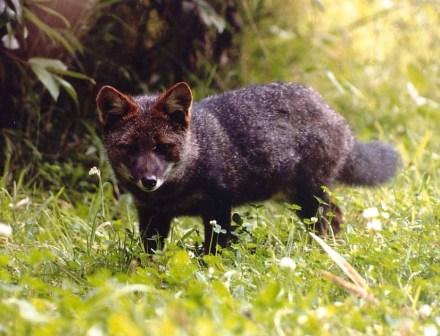Facts About Darwin's fox
Darwin's fox, also known as Darwin's zorro, is a rare and endangered species of wild dog indigenous to Chile. These elusive creatures can primarily be found in areas such as Nahuelbuta National Park, the Valdivian Coastal Range, and Chiloé Island. They are relatively small, weighing between 1.8 to 3.95 kg, with distinctive body and tail lengths.
For a long time, Darwin's fox was considered a subspecies of the South American gray fox. However, in 1990, genetic testing confirmed that Darwin's fox is a distinct species. Unlike other foxes, Darwin's fox favors forest habitats and has an omnivorous diet, consuming everything from small mammals to fruits.
These foxes are primarily active during the early morning and late evening. Unfortunately, there are only about 250 mature individuals remaining, most of which reside on Chiloé Island, underscoring the urgency of conservation efforts. Darwin's fox faces multiple threats, including habitat loss, diseases transmitted by feral dogs, and human activities. Although it was once classified as Critically Endangered, it was downgraded to Endangered in 2016.
A significant threat to Darwin's fox is an infection known as Mycoplasma haemocanis. This disease can spread rapidly, particularly in areas close to human settlements and where there are many wild dogs. It poses a threat not only to the foxes but also to other mammals, including humans.

 Argentina
Argentina